Its Exactly Like 'They' Just Don't Care Anymore
Anonymous, Inc.
NYC Attorney: We run the country
See what happens when hidden cameras capture New York lawyers being asked to move highly questionable funds into the U.S. Steve Kroft reports.
The following is a script from "Anonymous, Inc." which aired on Jan. 31, 2016. Steve Kroft is the correspondent. Graham Messick and Kevin Livelli, producers.
If you like crime dramas and movies with international intrigue, then you probably have a basic understanding of money laundering. It's how dictators, drug dealers, corrupt politicians, and other crooks avoid getting caught by transforming their ill-gotten gains into assets that appear to be legitimate.
They do it by moving the dirty money through a maze of dummy corporations and offshore bank accounts that conceal their identity and the source of the funds.
And most of it would never happen without the help -- witting or unwitting -- of lawyers, accountants and incorporators; the people who actually create these anonymous shell companies and help move the money. In fact, the U.S. has become one of the most popular places in the world to do it.
Tonight, with the help of hidden camera footage, we're going to show you how easy it seems to have become to conceal questionable funds from law enforcement and the public.
You need look no further for evidence than the changing skyline of New York City, where much of the priciest residential real estate is being snapped up not by individuals, but by anonymous shell companies with secret owners.
There's nothing illegal about it as long as the money's legitimate, but there's no way to tell, if you don't know who the real buyers are. It is one of the reasons Global Witness, a London-based nonprofit organization that exposes international corruption, came to New York City 19 months ago. It wanted to see how helpful U.S. lawyers would be in concealing questionable funds.
For more on Global Witness' investigation, including complete hidde...
This hidden camera footage was shot in law firms across Manhattan without the lawyers' knowledge by the man in the gray coat with the German accent.
Lawrence Gabe: OK, so it's Ralph?
Ralph Kayser: Ralph Kayser.
"Ralph Kayser" is not his real name. He's an investigator for Global Witness posing here as the representative of a government official from a poor West African country who wants to move millions of dollars in suspicious funds into the U.S., and he needs the lawyers' help.
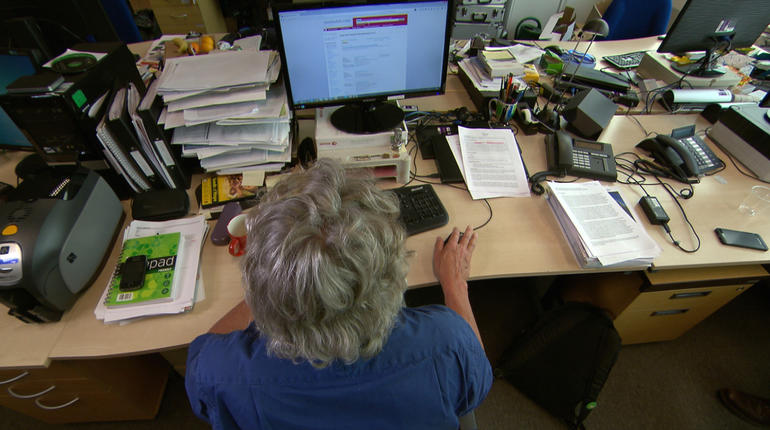
Gerald Ross: Are you gonna tell me what country and what minister this is?
Ralph Kayser: I can't tell you. It's one of those mineral rich countries in West Africa. There are not so many.
Attorney Gerald Ross and the other lawyers were told secrecy was essential, because the African minister had amassed his fortune collecting special payments from foreign companies that he'd helped obtain valuable mineral rights.
Kayser to Koplik: So companies are eager to get hold of rare earth or other minerals. And so they pay some special money for it. I wouldn't name it bribe. I would say "facilitation money."
Kayser said it was all legal. He told attorney James Silkenat and the other lawyers that the minister was shopping for a townhouse, a jet and a yacht, but his name must not be connected to the purchases.
Kayser to Silkenat: If his name now would appear in connection with buying some real estate here and other items, it would look at least, very, very embarrassing.
James Silkenat: Right. 'Cause his, presumably his salary in, wherever it is, would not cover the kinds of acquisitions we're talking about.
Ralph Kayser: Oh. For sure. It's the salary of a teacher here. And so how can we make sure that he is being able to, to buy property here and to live a nice life, but his name being out?
James Silkenat: Right. Any guesses as to how much money we're talking about for the brownstone and the other items?
Ralph Kayser: I mean, the brownstone, talk about $10 million. For second-hand Gulfstream, I could imagine $10, $20 million. A yacht would be at least, $200, $300 million.
The fictitious story of the African minister was cooked up in Global Witness' London office, based on an actual money laundering case. The investigator phoned 50 New York law firms with experience in private asset protection and managed to get face-to-face meetings with 16 different lawyers in 13 firms.
Kayser To Jankoff: I'm very frank. It's, I would say "gray money." I think somebody told me you name it "black money."
Global Witness says the pitch was intentionally designed to raise red flags and to give the lawyers good reason to suspect that the minister's millions came from official corruption and they all did.
Ralph Kayser: It's only that the money is a bit, let's say-
Lawrence M. Gabe: Tainted.
Ralph Kayser: Tainted, thank you very much.
Lawrence M. Gabe: OK, that's a nice word. OK.
Kayser to Koplik: Or, you gave another expression?
Marc Koplik: Honest graft.
Kayser to Koplik: Honest graft! OK, fine. I have to be frank. It's honest graft.
Kayser to Ross: How would you name it?
Gerald Ross: Some people call it bribes.
Ralph Kayser: Nah, I wouldn't name it bribe--
Gerald Ross: Never. Right, no, course not.
Ralph Kayser: --because it's a business deal. So, OK, bribe. Is, actually, bribe.
Charmian Gooch: You know, the story of the fictitious African minister would probably have raised eyebrows for the average person on the street.
Charmian Gooch is the co-founder of Global Witness, a public advocacy group that exposes corruption in the developing world. Previous undercover investigations exposed the global trade in African blood diamonds. This investigation, Gooch says, exposes serious flaws in the U.S. legal system that have made it a hub for international money laundering.
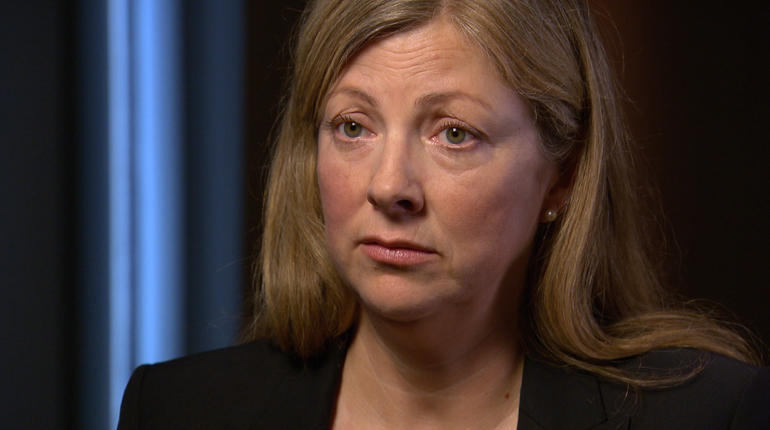
Charmian Gooch: What the lawyers laid out for us in some detail was all the different possibilities and ways in which it could be done.
Steve Kroft: What you're saying is if you want to get dirty money into the United States, it's not that hard to do.
Charmian Gooch: What I'm saying is there is an open door and it's pretty shocking and pretty concerning, because that money could be coming from anywhere.
Of the 16 lawyers that Global Witness recorded in these preliminary meetings, only attorney Jeffrey Herrmann flatly declined to participate and showed Ralph Kayser the door.
Jeffrey Herrmann: I have some real questions about that.
Ralph Kayser: Yes?
Jeffrey Herrmann: Under the Foreign Corrupt Practices Act.
Ralph Kayser: Right.
Jeffrey Herrmann: And under the Foreign Corrupt Practices Act, bribing foreign officials is illegal.
Ralph Kayser: By Americans.
Jeffrey Herrmann: By Americans.
Ralph Kayser: But Americans are not involved. So it's money from other nation-- nationals, not American entities, not American nationals--
Jeffrey Herrmann: It's not for me.
Ralph Kayser: Pardon me?
Jeffrey Herrmann: It's not for me.
Aside from that one exception, 12 out of the 13 law firms, including 15 out of the 16 lawyers, not only heard Ralph Kayser out, they suggested ways that the suspicious funds could be moved into the U.S. without compromising the minister's identity.
Attorney James Silkenat was selected by Global Witness because at the time, he was president of the American Bar Association. Yet he and his colleague, Hugh Finnegan, provided what former prosecutors told us was a roadmap of how to conceal the source of the funds using layers of anonymous, interconnected shell companies in multiple jurisdictions.
Hugh Finnegan: Presumably, we would set up a little bit of a series of owners to try and, again, protect privacy as much as anything else.
Ralph Kayser: Yeah.
James Silkenat: So Company A is owned by Company B which is owned jointly by Company C and D and your party owns all of or the majority of the shares of C and D.
Ralph Kayser: So we, we create several companies?
Hugh Finnegan: Yes.
Ralph Kayser: All in New York or different states?
Hugh Finnegan: Well. Like I said, at some point, probably pretty quickly, you'd go offshore.
Attorney John Jankoff and his partner, Lawrence Gabe, recommended variations of the same strategy.
John H. Jankoff: A lot of people in Africa use the Isle of Man. Some of them use Lichtenstein--
Lawrence M. Gabe: So he would just take his millions of dollars, put it in Isle of Man--
John H. Jankoff: He can put it into a Swiss bank account. The Swiss will have it. And-- and then--
Lawrence M. Gabe: And then he comes to us.
John H. Jankoff: And then he comes to us and says, "I wanna buy a townhouse."
Attorney Marc Koplik also suggested that the minister could move his money out of West Africa to Europe, where it could be "scrubbed" in an anonymous corporate entity that his firm would be happy to set up.
Marc Koplik: The money as it sits now, is it in his name?
Ralph Kayser: It's in different names.
Marc Koplik: OK. So it will come as those different names?
Ralph Kayser: Including his name, yes?
Marc Koplik: So we have to scrub it at the beginning, if we can, or scrub it at the intermediary location that I mentioned.
Ralph Kayser: So how to do this, intermediary? That means a bank in?
Marc Koplik: We'll say Luxembourg.
Ralph Kayser: Luxembourg.
Marc Koplik: We will set up an appropriate entity call it ClientOverseas-dot-com or whatever, and then that will send money into the United States.
If that was a banker talking instead of a lawyer, he could be in serious trouble. That's because under U.S. law, bankers are required to report suspicious financial activity to the authorities. Lawyers are under no such legal obligation.
Charmian Gooch: Banks in America are required to know their customer or required to be very cognizant of risk and to report on it if there, if there is an issue there around money laundering. And yet, absolutely bizarrely, American lawyers aren't. This is clearly an issue. And I think our investigation has shown the potential for what could happen because of that lack of regulation.
Global Witness says that anomaly is just one of the flaws in the U.S. legal system that helps facilitate money laundering.
[Global Witness staffer: And we're gonna call it here, "Anonymous, Inc."]
Another is the ease in which anonymous shell companies can be set up here to conceal ownership of money and assets. Last year, two million new corporations were set up in the United States, many with no offices, products or employees, just an address and perhaps a bank account.
Charmian Gooch: In many states across America, you need less identification to set up and open up an anonymous company than you do to get a library card.
Gooch says anonymous shell companies are like getaway cars for crooks, designed to put them as far way as possible from the scene of their crime. According to a World Bank study, the U.S. was the favorite place for corrupt officials to set up anonymous shell companies.
Charmian Gooch: There was a very good academic study and America came up as the easiest place to set up an anonymous company after Kenya, out of 180 countries.
Steve Kroft: After Kenya?
Charmian Gooch: After Kenya.
Steve Kroft: So did that study have anything to do with your decision to go ahead and do these undercover investigations?
Charmian Gooch: It inspired us. I mean, we almost thought, "It can't be this bad, can it?" And unfortunately, what we found is it is.
All of the attorneys expressed some concerns, like this one from Gerald Ross...
Gerald Ross: I've gotta be very careful myself. I don't wanna do something it's looks like I'm laundering money. And that would cost me my license and-- and I-- just don't do that.
But later, he suggested that the questionable money could be wired directly into his client escrow account, bypassing scrutiny from the banks.
Gerald Ross: When I get money from my other clients it always come here with some strange name on it. I don't even ask.
Kayser to Ross: And nobody ask?
Gerald Ross: It doesn't come from Minister Joe Jones. It comes from the XYZ account.
John Jankoff said they would need to get a legal opinion that the money was clean... then suggested that the minister use front men to open up overseas bank accounts.
John H. Jankoff: If it's not in his name, then he needs what is known as a "straw man." Practically speaking if the money leaves the country his name should not be attached to the wire. It should be other people's names.
Chip Poncy: We know this happens. We know this happens. This is how money laundering occurs all over the world. But that does not mitigate the power of seeing it up close.
We showed the tapes to Chip Poncy, a former top official at the Treasury Department whose job was to stop financial crime, terrorist financing and money laundering. He says there's nothing wrong with lawyers setting up anonymous shell companies to protect a client's privacy, but if it's done to conceal criminal activity, that's when it becomes a problem.
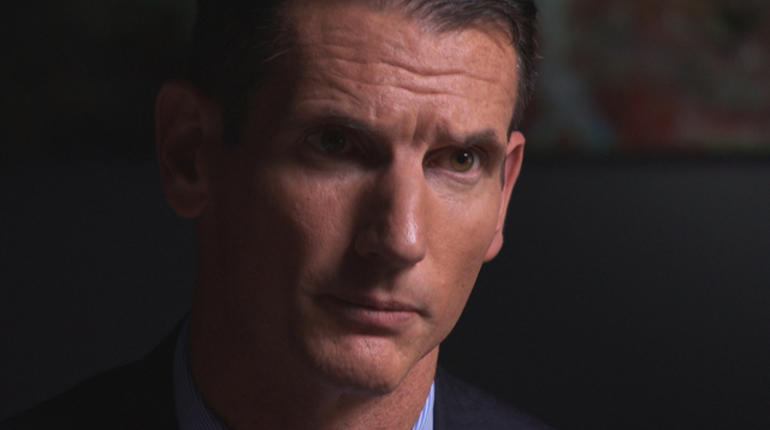
Chip Poncy: There's a clear pitch consistently presented in every one of these tapes of what amounts to an incredible number of red flags that scream corruption.
Steve Kroft: Dirty money?
Chip Poncy: Dirty money.
Steve Kroft: Bad actors?
Chip Poncy: Bad actors. They don't want to be found and they have a need. They've got to move their money from a point where they've received corrupt proceeds in this case to a point where they can enjoy those proceeds. And to get 'em from, to get this money from point A to point B, they need help in laundering it, effectively.
Poncy says he was dismayed with the ease and the comfort with which attorneys seemed to be willing to turn a blind eye and discuss a matter that was likely to be illegal.
Chip Poncy: What's essential to recognize is that this is after it's been revealed that the potential client is representing an African minister with hundreds of millions of dollars of funds received through, effectively, bribes.
Steve Kroft: This is more than legal advice?
Chip Poncy: This is legal advice on how to evade controls, or at a minimum, very clear global standards on financial transparency to allow our countries to go after proceeds of crime.
Attorney Marc Koplik told the Global Witness investigator that he preferred using money managers and investment firms to move funds. He thought it was less risky than using banks.
Marc Koplik: And I would suggest three or four to you. Some are bigger. Some are smaller. The smaller ones are often more flexible and understanding and less concerned about their reputation. Because they fly, to a greater extent, below the radar screen.
Sometimes the advice took the form of suggesting banks and countries that might be less vigilant about money laundering.
James Silkenat: We would have to look into how far specific banks looked into, you know, the you know, the know your customer laws and how far they would dig.
Hugh Finnegan: In many ways, you'd probably be better off with a smaller bank because--
Ralph Kayser: That would be a possibility.
Hugh Finnegan: 'Cause the bigger banks are much more serious about looking into that stuff.
Ralph Kayser: Their reputation.
Hugh Finnegan: Right. Yes.
James Silkenat: And there may be other banking systems that are less rigorous on this than the U.S. would be.
Ralph Kayser: What would it be?
James Silkenat: The usual banking havens, I think, would be ones you would want to consider. We could provide you with a list of countries where the banking systems require less detail on ownership or source of funds.
While James Silkenat, the former president of the American Bar Association, and his partner, Hugh Finnegan, listened to the pitch and suggested ways in which they might be able to help, they were also the most suspicious of Ralph Kayser and his African minister, beginning just five minutes into the meeting.
James Silkenat: We need to talk about the risks or just concerns about where he got the money and how to explain that.
Ralph Kayser: That's it.
James Silkenat: There is, there are issues there. The transactions is which he would be involved here wouldn't be part of facilitating payments, but if that's really where the money came from and if there were, you know, quote unquote crimes committed someplace else, that, that starts to be an issue.
They were also the most cautious about moving forward. Towards the end of the meeting, Hugh Finnegan, who is off camera here, said the firm would feel obligated to report anything it believed to be illegal.
Hugh Finnegan: Bearing in mind of what you said, no American law was violated, no local law was violated, but, you know, if we're aware that a crime is being committed, we have an obligation to report that.
Steve Kroft: Mr. Silkenat says, "We need to talk about the risks or just concerns about where he got the money and how to explain that."
Chip Poncy: That, that, and that's, that's a welcome--
Steve Kroft: He's already been told how, where the money came from and how he got the money.
Chip Poncy: Correct. So it, it's, it's, it's a healthy recognition that there's an issue here.
Steve Kroft: If you could ask him anything about this meeting, what would it be?
Chip Poncy: What's going through your head? Why are you continuing this conversation? Why not just say no? Is the business that important?
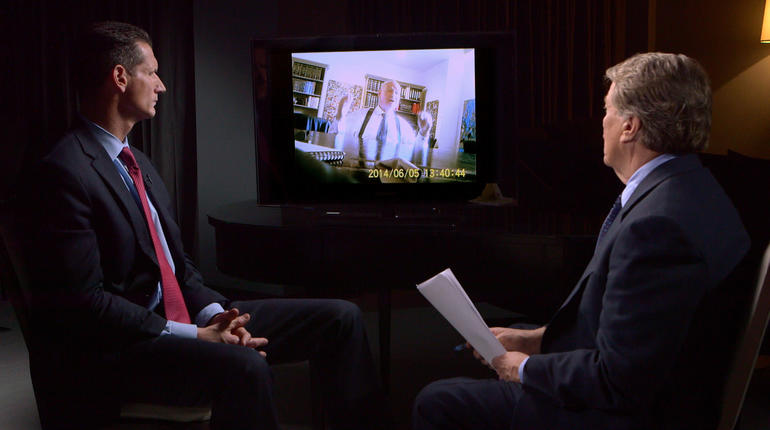
Neither Silkenat nor Finnegan would agree to an on-camera interview. But they sent us a statement saying they only discussed generic information that could be found on the Internet and that their conduct was "entirely appropriate." "Had the camera followed us after the meeting" they wrote, "it would have shown us... agreeing... Kayser was disreputable and that we would not deal with him again." None of the other lawyers agreed to give us an on camera interview either. When we come back, we'll take a look at the legal and ethical implications of what you've just seen.
http://www.cbsnews.com/news/anonymous-inc-60-minutes-steve-kroft-in...
Comment
-
Comment by Anti Everything on February 10, 2016 at 1:05pm
-
This and other worldly goings-on are the reason I stopped participating in the medicine, phood, schools, defacto government.
"Destroying the New World Order"
THANK YOU FOR SUPPORTING THE SITE!
Latest Activity
- Top News
- ·
- Everything
Official Trailer NOVA '78 directed by Aaron Brookner and Rodrigo Areias
Peter Sellers - The Party (opening scene)
Disgraced Former CNN Anchor Don Lemon Arrested
Our Crazy Modern World
2DF36465-A826-443C-A3A8-6638BC1D4FFA
© 2026 Created by truth.
Powered by
![]()

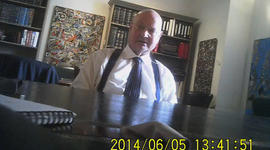
You need to be a member of 12160 Social Network to add comments!
Join 12160 Social Network